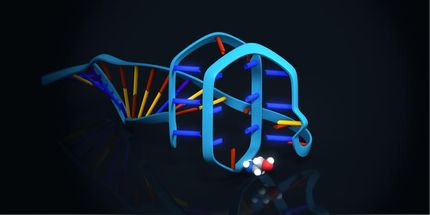BASF introduces world's first and only triphenylphosphine pellets
New pellet form reduces dusting and improves handling for customers
Advertisement
BASF is the first company worldwide to offer customers a new, superior pellet form of triphenylphosphine (TPP) that minimizes dust and improves handling and processing. In addition, the breakthrough product is made at a new manufacturing plant dedicated solely to this product and using an improved process. The plant enables BASF to respond flexibly to customers' requirements for different product formulations, and to easily satisfy any surges in demand.
"Customers are very interested in the new TPP pellets and expect product handling to be much easier," said Dr. Dieter Kovar, Business Director, Marketing, Acids and Specialty Intermediates for BASF in Ludwigshafen, Germany. Until now, the standard commercial form of TPP has been flakes, which typically stick together in their container. BASF's new TPP pellets empty with greater ease because the TPP pellets pour without difficulty. This dramatically reduces dusting and results in easier, cleaner product handling. Because of their superior product purity, BASF's TPP pellets also have significantly less odor than standard TPP flakes. BASF's TPP pellets can be packaged in flexible intermediate bulk containers (FIBCs), also known as bulk bags, without any problems.
Demand for TPP is growing worldwide," said Kovar. "This encouraging trend prompted BASF to double its capacity." BASF's new TPP plant, located at the company's manufacturing site in Ludwigshafen, is the largest of its kind in the world. It came on stream in January 2004. "BASF is the only manufacturer that operates a single-line TPP plant with continuous product processing," said Kovar. "Cross-contamination is no longer a concern. This enables the company to supply consistently high quality product."
In addition to pellets, BASF markets TPP in a melt formulation, which can be pumped, making dosing easier than for a solid. Most of BASF's TPP is sold to customers around the world, with a small fraction used within the company to make other products.
Most read news
Other news from the department research and development

Get the chemical industry in your inbox
By submitting this form you agree that LUMITOS AG will send you the newsletter(s) selected above by email. Your data will not be passed on to third parties. Your data will be stored and processed in accordance with our data protection regulations. LUMITOS may contact you by email for the purpose of advertising or market and opinion surveys. You can revoke your consent at any time without giving reasons to LUMITOS AG, Ernst-Augustin-Str. 2, 12489 Berlin, Germany or by e-mail at revoke@lumitos.com with effect for the future. In addition, each email contains a link to unsubscribe from the corresponding newsletter.
































































